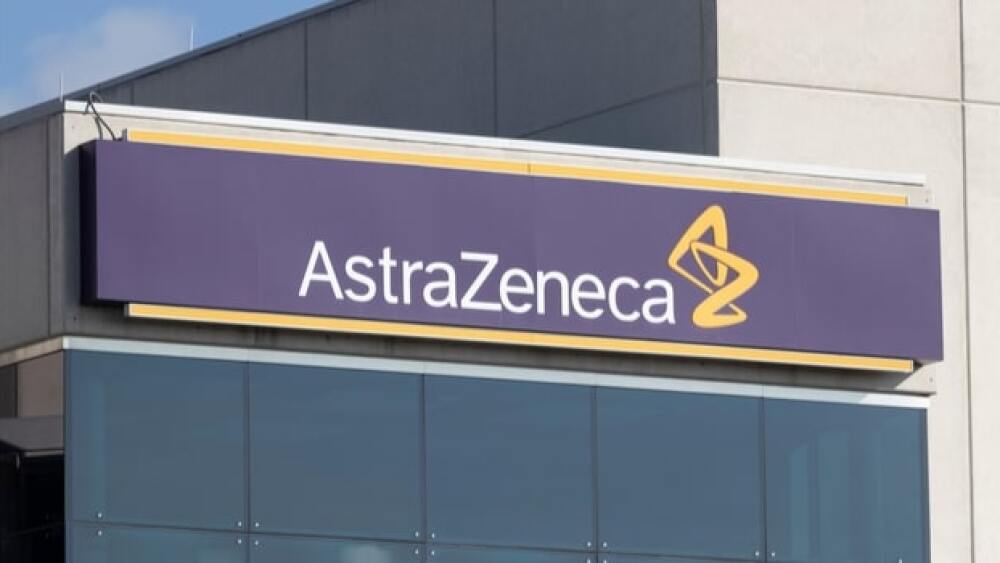Pieris Pharmaceuticals announced partner AstraZeneca’s decision to discontinue clinical studies of elarekibep, an inhaled IL-4 receptor alpha inhibitor, based on a non-clinical toxicology study.
Pictured: AstraZeneca sign on building/Courtesy of Jonathan Weiss/Shutterstock
AstraZeneca has decided to stop a mid-stage trial for the asthma medication elarekibep after data from a non-clinical toxicology study revealed inflammation-related lung tissue damage, according to an announcement Wednesday by Pieris pharmaceuticals, which licensed the inhaled IL-4 receptor alpha inhibitor to the British pharma.
According to Pieris, AstraZeneca’s decision to “discontinue and cease dosing in the ongoing clinical studies” of elarekibep “was made independent of any data” from the Phase IIa study.
“This decision was based on lung findings from a non-clinical 13-week GLP toxicology study with dry powder inhaler-formulated elarekibep, which are not a concern for the active clinical studies but do not support long-term use and progression to later-stage development,” Pieris stated in the press release.
Pieris CEO Stephen Yoder said he was disappointed with the non-clinical toxicology study’s findings. His company had partnered with AstraZeneca to assess the effectiveness of elarekibep, a dry powder-inhaler treatment they had hoped to market for moderate-to-severe asthma. The drug works by blocking the IL-4Rα immunoreceptor, which in turn inhibits the activity of two proteins, IL-4 and IL-13, which drive the inflammatory response in the lungs.
However, non-human primate testing with three active dose cohorts found damage to lung tissue, which did not appear to be dose-related. There were no clinical observations across any of the doses.
The news comes not long after the drug’s initially promising findings. In May, Pieris announced that a 10-mg dose of elarekibep had passed safety reviews. This came on the heels of successful safety testing of the 1-mg and 3-mg doses, which triggered the Phase IIa efficacy study on the 3-mg dose, which had been ongoing as of the latest safety findings.
Yoder said the new findings would put a stop to that testing. “We will now reassess our priorities and communicate a corporate update as quickly as possible following a thorough review of our options,” he said.
The companies partnered in 2017 to study the then-pre-clinical elarekibep, with AstraZeneca paying Pieris nearly $60 million for this asset, along with four other novel drugs against undisclosed respiratory targets. The terms of the deal required Pieris to push the drug, then known simply as PRS-060, into Phase I trials while AstraZeneca would fund clinical development and commercialization programs.
Elarekibep and the other assets belong to a proprietary class of drugs called Anticalin proteins. These inhalable proteins are being developed to treat respiratory diseases and work by imitating natural antibodies, allowing them to bond to other proteins and small molecules.
What distinguishes them is size, as they are smaller than other monoclonal antibodies. Pieris is hoping this will make it possible to deliver them directly to patients’ lungs. Prior to these latest results, and before partnering with AstraZeneca, Pieris had demonstrated proof of concept in animals and evidence for the feasibility of delivery directly to the lungs for elarekibep.
Pieris shares fell from a Tuesday closing price of 90 cents down to 39 cents by premarket trading on Wednesday, a drop of nearly 60%.
Connor Lynch is a freelance writer based in Ottawa, Canada. Reach him at lynchjourno@gmail.com.





